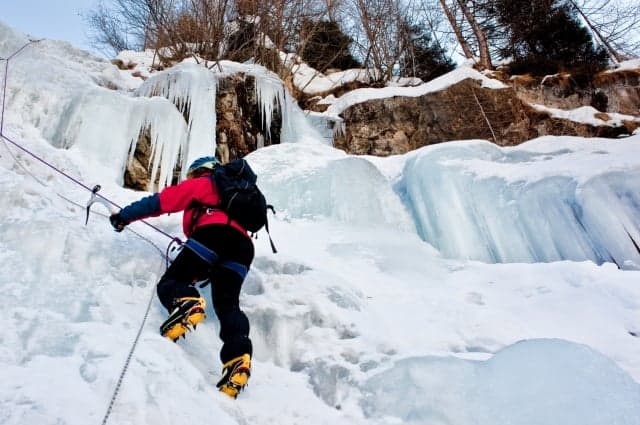Switzerland introduces tougher safety rules for high-risk sports

The Swiss government on Wednesday signed off on new rules designed to increase safety for people taking part in activities like canyoning, bungee jumping and hiking technically difficult routes with a guide.
The new rules, which come into force on May 1st, mean stricter rules for both organisers of high-risk sports activities and mountain guides.
Until now, only operators earning more than 2,300 Swiss francs (€2,000) have had to obtain a cantonal permit to carry out such activities. Now however, anyone earning any money at all in this way – even if it’s just one franc – will have to get a official permission from the authorities.
However, non-profit clubs and associations with their own safety rules will be exempt.
The updated rules (here, in French) also see Switzerland ditching its homegrown ‘Safety in adventures’ security standard in favour of international ISO standards for adventure tourism.
These rules did not exist in 2014 when the current standards were introduced, the Swiss government said in a statement.
The government also said that the adventure tourism industry was constantly changing and that the rules needed to updated to include new activities and permit categories.
Outdoor and adventure sports are a huge business in Switzerland and a key part of the country’s tourism offering.
Switzerland initially introduced legislation governing the safety of high-risk sporting activities after a 1999 canyoning accident in the Bernese Oberland region in which 21 people, including 14 Australians, were killed.
Read also: Nine wonderful winter activities in Switzerland that aren't skiing
Comments
See Also
The new rules, which come into force on May 1st, mean stricter rules for both organisers of high-risk sports activities and mountain guides.
Until now, only operators earning more than 2,300 Swiss francs (€2,000) have had to obtain a cantonal permit to carry out such activities. Now however, anyone earning any money at all in this way – even if it’s just one franc – will have to get a official permission from the authorities.
However, non-profit clubs and associations with their own safety rules will be exempt.
The updated rules (here, in French) also see Switzerland ditching its homegrown ‘Safety in adventures’ security standard in favour of international ISO standards for adventure tourism.
These rules did not exist in 2014 when the current standards were introduced, the Swiss government said in a statement.
The government also said that the adventure tourism industry was constantly changing and that the rules needed to updated to include new activities and permit categories.
Outdoor and adventure sports are a huge business in Switzerland and a key part of the country’s tourism offering.
Switzerland initially introduced legislation governing the safety of high-risk sporting activities after a 1999 canyoning accident in the Bernese Oberland region in which 21 people, including 14 Australians, were killed.
Read also: Nine wonderful winter activities in Switzerland that aren't skiing
Join the conversation in our comments section below. Share your own views and experience and if you have a question or suggestion for our journalists then email us at [email protected].
Please keep comments civil, constructive and on topic – and make sure to read our terms of use before getting involved.
Please log in here to leave a comment.